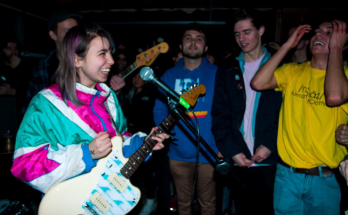Last year, I had the privilege of speaking briefly to Danny Gottlieb, early drummer for the Pat Metheny Group during their tenure at ECM. I asked him how one could respond to the perception of the Group’s music as pure background. He explained that while the ECM records sound glossy and distant, the actual performances were true jazz sessions full of interaction. Careful listening confirms this; these albums are truly forgotten gems, each one reading like a novel. Location is also an important factor in the records; the compositions are as if an impressionist painted a portrait (not a landscape) of the Midwest. Gottlieb continued to say that his leaving the band occurred as Metheny chose to reduce interaction, and the rhythm became a soundtrack for his ever-developing technique.
Gottlieb’s replacement was Paul Wertico, who was more appropriate for service in Metheny’s now-sidelined rhythm section. Though the Group went on to win stacks of Grammys (even their tepid albums sound impressive when set against countless tribute records and stagnate development in the jazz world), I can’t get over the feeling that they’ve moved in the wrong direction. Every record they make is less jazz and more soundscape. The even more-minimalistic Antonio Sanchez has replaced Wertico, who still showed some enthusiasm to play melody with Pat.
Wertico is an important piece of the puzzle in this record, featuring Italian duo Insout (who are also producers and founders of the TRP label). The compositions turn direction often. At the same time, they embrace triads and suspensions in ways that suggests European classical music. The record suggests a cast recording for a musical in the way songs seem to just need intervening dialogue to piece together, a dialogue one could imagine the musicians providing.
Claudio Allia doubles on piano and alto sax. Some passages are full of silence but when he overdubs both instruments, there is a much thicker mix. On sax, he uses dynamics sparingly and a restricted range; on piano, he plays simply. It’d be a pleasure to hear more self-consciousness in his playing, as most of his work seems to just lead somewhere else.
Riccardo Samperi’s comping on guitar occasionally suggests Pat’s 12-string work on albums in the ’70s. On lead, however, he’s his own man, with each note given equal due. The best bars on the whole record are devoted to his solos. Wertico plays “melody” throughout, and bassist Amato is willing to travel, extending lines on union passages, which Wertico complements. Amato is also very in touch with Allia’s piano, and the songs take advantage of this.
The real star on this record is the studio, though. All engineering and mixing is done by Allia and Samperi, and the individual sound they get on the rhythm instruments is yet another compositional tool. Acoustic Privacy, despite the corny name (I’m hoping it’s a result of a bad translation from Italian to English), is an excellent piece of jazz, and thanks to the selfless playing of the band, a musical portrait.



